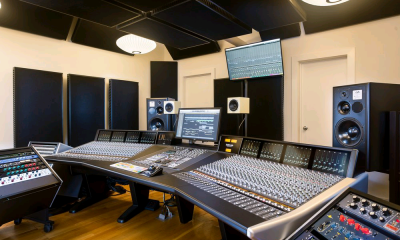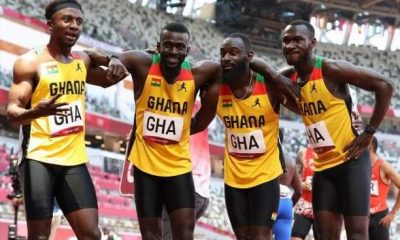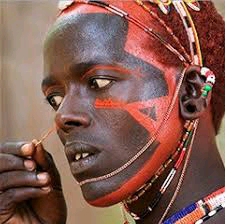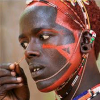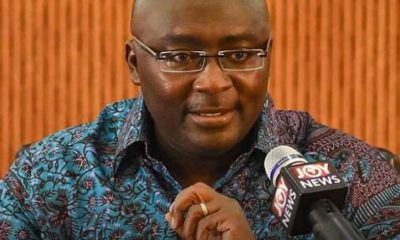Opinion
The media systems in Ghana, its weaknesses and the way forward.
Have you ever thought of how free the press can be in some parts of our world whilst it is rarely experienced in other parts?
The world’s media include television, radio, internet publishing and newspapers. For the purpose of this write up, the Ghanaian media would be looked at.
The media in the Gold Coast first emerged in the 19th century with the publication of The Gold Coast Gazette and Commercial Intelligencer in 1822. The paper had several functions such as to provide information for civil servants and European merchants ; and to help promote literacy rates and rural development among the local population – while encouraging unity with the Gold Coast government. In the mid-19th century, a diverse number of African-owned papers appeared that were largely unrestricted by the colonial government. This led to a surge of independent press, which in part led to the independence of Ghana.
In history, Colonial Governor Sir Arnold Hodson introduced the first radio channel, named Radio ZOY, in 1935. Its main purpose was to spread propaganda to gain support of the colonies as against making the reality known.
Following the 6th March, 1957 declaration of independence by Ghana from the United Kingdom, there were only around four newspapers. Leader Kwame Nkrumah eventually controlled all the press in Ghana and saw it as an instrument of state authority, providing propaganda that encouraged national unity and creating a hierarchal system of state apparatus to manage the media. Transfer of the media had changed hands from a civilian to a military government, and a series of arrests and imprisonment of political opponents by Nkrumah had a chilling effect on the media. The opposition Ashanti Pioneer, which had operated since the 1930s, was shut down by Nkrumah after being subject to censorship. After Nkrumah’s overthrow in a coup, many state outlets changed hands, though still under the control of the ruling party. The National Liberation Council (NLC) imposed stricter controls on domestic private outlets; for example, the Rumours Decree in 1966 that prevented anyone from suing government-owned newspapers. So on and on came other military and civilian governments who tried to either give press freedom or suppress the operation of the press.
In 1992, Ghana promulgated a new constitution, and returned to democratic rule on 7th January, 1993. Jerry John Rawlings as part of the
National Democratic Congress (he retired a Flight Lieutenant of the Ghana Armed Forces) liberalised the media by repealing previous laws the PNDC signed in. The private media, which had previously been silenced under the regime for the past decade, used the new press freedom laws to voice criticism at Rawlings of the years of strict laws and published several accusations of violent
authoritarianism and drug abuse. The state media however, maintained a favourable image of Rawlings. Rawlings acknowledged the years of media repression, though he defended the military coup.
After the election in 2000 of John Agyekum Kufour, the tensions between the private media and government decreased. Kufour was a supporter of press freedom and repealed the criminal libel law, though maintained that the media had to act responsibly. The Ghanaian media has been described as “one of the most unfettered (free)” in Africa, operating with little restriction on private media. The private press often carries criticism of government policy. The media, and broadcast media in particular, were vigorous in their coverage of the 2008 Ghanaian presidential election , and the Ghanaian Journalists Association (GJA) praised John Atta Mills on his election, hoping to foster a good media-government relationship. During a 1999 interview, the GJA described how the media has helped promote democracy in the country.
With regards to the weaknesses of the media system in Ghana; despite its relative freedom, the media in Ghana does face some challenges. Journalists in Ghana are often poorly paid, under resourced, and often lack training since most of them use already gathered experience instead of properly acquired tuition and certification from highly esteemed institutions like Ghana Institute Of Journalism. As a result, some journalists in Ghana find themselves very tempted to engage in bribery and self-censorship. The quality of radio and television broadcast media programming is low. With respect to newspapers, the ownership landscape of newspapers is politically polarized with most newspapers supporting either the government or opposition party lines. Only one newspaper, the state-owned Daily Graphic is somewhat truly national in distribution.
The following factors could be the way forward to improve the weaknesses in the media system in Ghana:
1. Looking at Ghanaian journalism, one gets the impression that all problems are connected by the same source: money. If Ghanaian journalists are actually paid well, they would be able to afford the costs for transportation, logistics in their investigative works and so forth without needing some help from avenues that could put them in a tight corner and prevent them from doing a very transparent work. Consequently, there would be more variety of subjects, as the journalists would be freer in deciding on what to report, choosing the topics for their importance instead of money or other benefits.
2. Also, adequate education, internships and in-service training sessions concerning professional journalism should be experienced by all and sundry who wish to be in the field of this reputable career.
3. Another angle that this can be seen is also the issue of motivation. Extrinsic motivation should be made readily available for all those who have the zeal to engage in total journalism devoid of manipulation and selfishness. Again, intrinsic motivation should also be a pushing factor for the individual who is interested in this noble profession. The love for the work should be there so that the person can work whole heatedly no matter the difficulties that they may encounter. With the above in place, media systems in Ghana from the point of view of human resources would be improved significantly.
4. Lastly, the essence of more “press freedom” clauses in the constitution can also help improve media systems in Ghana. For instance the recently accepted RTI (Right To Information) law in Ghana is another important way of improving media systems in Ghana. With this, journalists wouldn’t have to struggle unnecessary before having access to vital information from public and/ or corporate institutions to help them go about their normal research, investigative or reporting duties. If more of such laws are accepted in the country then journalism would take a very interesting turn in the country.
What do you make of this…?
C. A. Asante
Freelance Writer
Ghana – W/A




